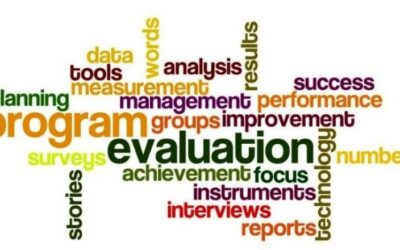Course Description:
Gender mainstreaming is an indispensable approach to achieving sustainable development by ensuring that gender perspectives and equality are integrated into all aspects of policy-making, planning, implementation, and monitoring. This course delves into the intersection of gender and sustainable development, equipping participants with the knowledge and tools necessary to promote gender equality and social inclusion within various development initiatives.
Participants will explore the theoretical foundations of gender mainstreaming, understanding its importance in addressing systemic inequalities and promoting sustainable outcomes. Through case studies and real-world examples, learners will analyze the impacts of gender biases on development projects and examine best practices for integrating gender-responsive strategies into policy frameworks.
Key topics covered include gender analysis, gender-responsive budgeting, women’s empowerment, and the role of men and masculinities in achieving gender equality. Participants will also examine the significance of mainstreaming gender perspectives in sectors such as health, education, agriculture, and climate change adaptation.
By the end of the course, participants will have developed the skills to assess gender disparities, design inclusive development programs, and advocate for policies that prioritize gender equality. Through interactive discussions and practical exercises, learners will be equipped to contribute effectively to sustainable development efforts that address the diverse needs and experiences of all genders.
Course Objectives
By the end of this course, participants will be able to:
- Understand the concept of gender mainstreaming and its significance in promoting sustainable development, recognizing its role in addressing systemic inequalities and fostering inclusive societal progress.
- Analyze the intersections of gender, social norms, and power dynamics within development contexts, enabling participants to identify and address gender biases and disparities in policy-making, planning, and implementation.
- Develop practical skills in gender analysis and gender-responsive budgeting, equipping participants with tools to assess the differential impacts of development interventions on various gender groups and allocate resources effectively to promote gender equality.
- Explore strategies for women’s empowerment and the engagement of men and masculinities in promoting gender equality, fostering a deeper understanding of the multifaceted approaches needed to advance gender justice and social inclusion.
- Apply gender mainstreaming principles to diverse sectors such as health, education, agriculture, and climate change adaptation, enabling participants to design and implement gender-responsive programs and policies that contribute to sustainable development goals.
Course Benefits
After completion of this course, participants should have acquired the skills to contribute towards the implementation of gender mainstreaming in their organisations, workplace and communities.
Additional Features:
- Online, interactive, self-paced and self-learning modules.
- Assignments to test your knowledge and understanding before and after the test.
- Opportunity to post comments, assignment answers, live chat etc.
Target Audience:
This course is designed for women and men in governments, donor agencies and NGOs, non-profits, students, as well as individual consultants and trainers, who have the responsibility of mainstreaming gender in development organisations and in national policy processes. Also, not left out is managers, executives, and other staff working on gender issues.
Entry Requirement:
Participants must have a current e-mail account, regular access to and general familiarity with the internet and mobile phones.
Course Delivery:
Interaction with participants will be via the Global Human Rights Leadership Training platform and all course notes and guidelines for study will be delivered and accessible to participants on this platform. The course modules are made available to the participants at the beginning of the course. At the end of each module, an assignment is completed by the participants and automatically marked by graded by the system. Assignments are in the form of objective questions.
Award of Certificates:
Certificates can be awarded only to those participants who:
- Completed at least 70% of all assignments and final assessment;
- Obtain a combined final mark of 50% or more for the assignments and final assessment.
Successful participants will receive the GHRLTI specialized Certificate on Gender Mainstreaming for Sustainable Development (GMSD) to validate their skills and knowledge.
Course Location: Online [web-based]
Time Commitment
While learning styles can vary considerably and any particular participant will take more or less time to learn or read, we estimate that the “average” participant will take 84 hours to complete this course. It’s a good idea to also schedule your study time in advance and try as best as you can to stick to that schedule.
Registration Procedure:
The deadline for application is 9th April 2024, while full tuition payment is due on or before 10th April 2024. However, applications will be accepted on a first-come-first-serve basis. You can also apply online at https://justicegroup.org/submit-your-application-form/ OR you can request for application by sending a mail to applications@justicegroup.
Inquiries about the course may be sent to email: applications@justicegroup.org OR global4learning@gmail.com.
Course Curriculum
-
Course Overview
-
Introduction to Gender Mainstreaming and Sustainable Development
-
Gender and Development Issues
- What does “Gender & Development” refer to?
- Historic evolution of the link between women’s situation and development
- Gender and development approach: what is it?
- Gender and development: key concepts
- Putting gender and development approach into practice
- Discussion
- Summary of key learning points
- Key takeaways
- Module 2 – Exercise
-
Gender Analysis, Tools and Frameworks
- Introduction
- Why gender analysis
- How do we do a gender analysis
- When should we do a gender analysis
- Who should do a gender analysis
- How to conduct a gender analysis
- Gender analysis frameworks
- Key gender analysis tools
- Key steps to the application of gender analysis tools
- Case Study
- Summary of key learning points
- Key takeaways
- Module 3 – Exercise
-
Gender Mainstreaming
-
Gender Mainstreaming in the Project Cycle
- Introduction
- Understanding the project cycle and its phases
- Key steps in gender mainstreaming in the project cycle
- Gender mainstreaming in pre-planning the project
- Gender analysis in the project cycle
- Data needs for gender mainstreaming
- Case study
- Conclusion
- Summary of key learning points
- Key takeaways
- Module 5 – Exercise
-
Gender Monitoring and Evaluation
- Introduction
- Understanding the concept of monitoring and evaluation
- Gender sensitive monitoring and evaluation
- Why is monitoring and evaluation important
- Gender sensitive indicators
- Classification, sources and interpretation of gender sensitive indicators
- How to develop gender sensitive indicators
- Gender in project evaluation
- How to develop gender sensitive monitoring and evaluation systems
- Case study
- Summary of key learning points
- Key takeaways
- Module 6- Exercise



